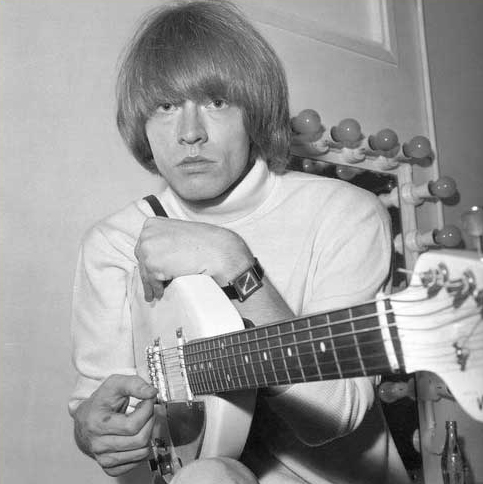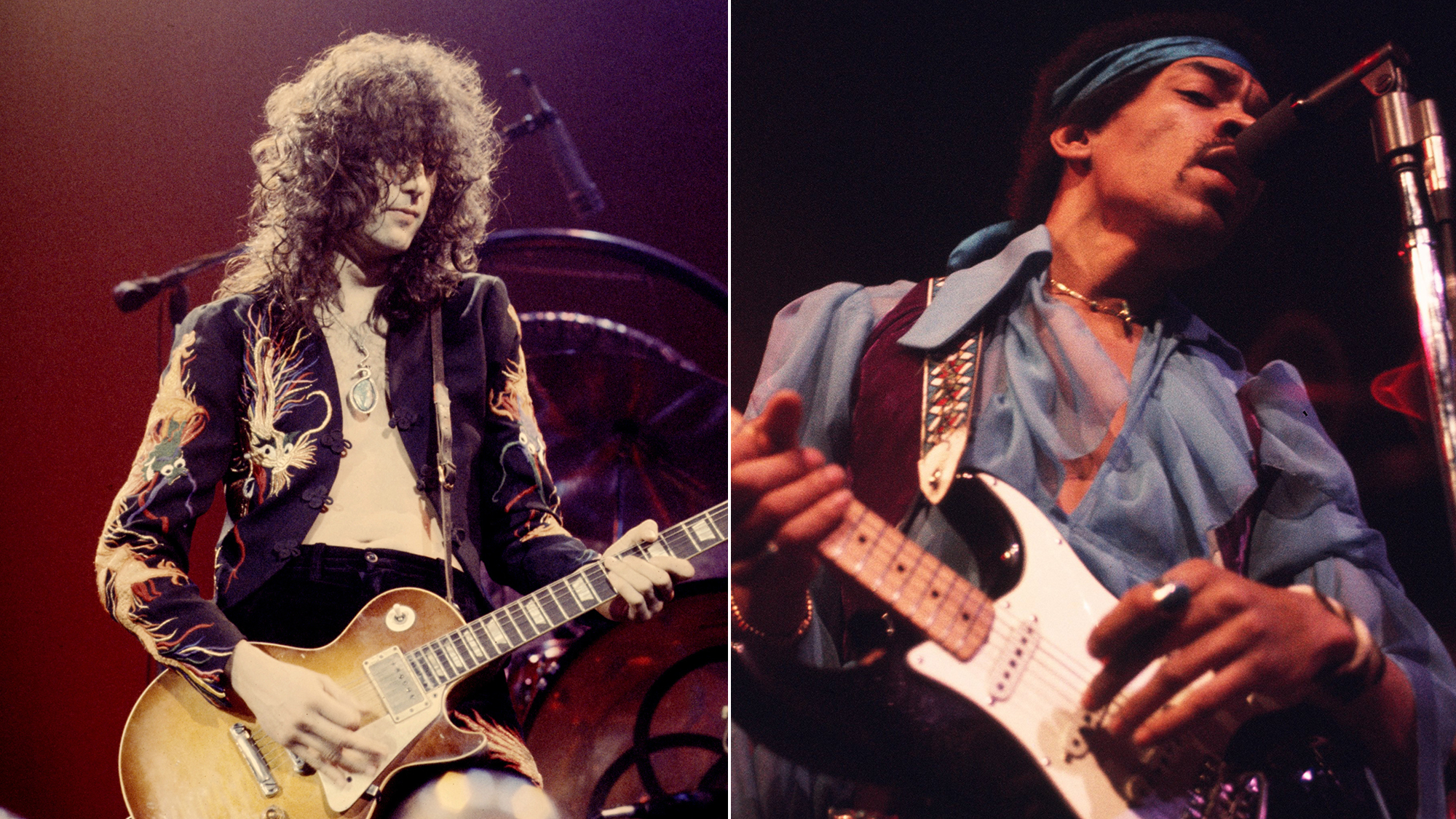Rock Stars: Some "Sympathy for the Devil," The Rolling Stones' Brian Jones

Brian Hopkins Jones
Born: February 28, 1942, 12:07 GMT, Cheltenham, Gloucestershire, England
Died: July 3, 1969, Hartford, England
Sun in Pisces, Scorpio Rising, Moon in Leo.
As founder of The Rolling Stones, Pisces Brian Jones was one of the most misunderstood and undeniably important innovators in rock and roll,
Jones' contribution to the ultimate blossoming and explosion of rock in popular culture cannot be underestimated. However, as a vulnerable Pisces, Jones suffered a fate typical to his Sun sign: He was marginalized from and eventually lost control of the band he had founded, not to mention much of the credit for his accomplishments. Moreover, exaggerated and inaccurate characterizations of Jones have marred his reputation and ultimately diminished his historical relevance over the 40-plus years since his untimely death in 1969.
Jones’ conceptual exploration of American blues was the catalyst underlying the definitive “Stones sound.” Jones pioneered a style of blues-influenced rock, the foundation upon which The Rolling Stones achieved success, recognition and worldwide fame.
There are many contradictory aspects to Jones’ astrological makeup. The Sun in Pisces is usually expressed through a shy, reticent personality. However, in Jones’ case, a fiery conjunction of Pluto and the moon in charismatic Leo bestows him with the confidence to overcome any Pisces potential toward introversion. Likewise, Jones’ Scorpio ascendent, usually the mark of a secretive and brooding character, instead provided an outlet through which he could channel the burgeoning artistic potential of his Leo moon and Pluto. This Leonine charisma is clearly evident in Jones’ flair for drama, his engaging performances and the enthralling persona that captivated millions of fans.
Venus, the planet of singing, music and beauty, is conjunct Mercury, the messenger, in free-thinking, innovative and unconventional Aquarius, qualities evident in Jones’ irreverent communication style and his penchant for challenging social norms. Aquarius, the sign of the rebel, is exhibited through Jones’ desire to break through restrictions on his ability to openly express his views in through creative expression.
The confluence of these two planets in Aquarius also underlies Jones’ ability to network in social scenes, bring people together and network and form fertile collaborative efforts. Due to the non-egotistical nature of his Pisces Sun; however, pursuing authorial credit for his creative contributions was not a top priority. Moreover, his Scorpio ascendant was perfectly content working behind the scenes. Which is why Brian Jones songwriting credit is glaringly absent on so many Rolling Stones songs in which he is featured prominently.
Get The Pick Newsletter
All the latest guitar news, interviews, lessons, reviews, deals and more, direct to your inbox!
Neptune, the planet of music, spiritual pursuits, and artistic self-expression falls in Virgo in his tenth house of fame, reputation, and professional accomplishment. Neptune in this prominent position supported Jones’ pursuit of a career in the arts, especially music. This placement also conveyed negative influences as well. Neptune rules drugs, secret enemies, self-destructive tendencies, and deceit.
The negative effects of his strong Neptune can be seen in a variety of ways: the social stigma of being branded a drug addict; contending with secrecy and betrayal within his own band; and the infidelity of girlfriend Anita Pallenberg with band mate Keith Richards. Neptune is also the planet of the subconscious and psychic abilities. A typical intuitive Pisces, his Neptunian qualities are typified by Jones’ eerie precognition of his own demise. As he stated, quite matter-of-factly, in the 1966 Peter Whitehead documentary Charlie is My Darling, “My future as a Rolling Stone is uncertain.”
Betrayal and deception are common themes for Pisces. The nebulous air of mystery surrounding Jones’ life, work, and particularly his death by drowning are all factors related to his prominent Neptune in the tenth house of fame. Combined with the potentially sinister and always intense Scorpio ascendant, the establishment of “the myth of Brian Jones” seemed inevitable. Throughout his life and especially after his mysterious death on July 3, 1969, a somewhat mythologized characterization of Brian Jones prevailed. Neptune represents the masking of the truth through contradiction, obfuscation, and outright deception.
No on really knows the real Brian Jones; he is still a mystery to many. Neptune rules the sea, oceans, and bodies of water; even Jones’ death was dominated by Neptunian influences, underscored by the suspicious nature of his death by drowning in his own swimming pool.
Another interesting features of Jones’ horoscope is the preponderance of planets in the seventh house of partnerships. Jupiter, Uranus, Mars and Saturn in the bull-headed, uncompromising, sign of Taurus. This influence underpins Jones’ aggressive, forceful, and ambitious personality as well as his forthright honesty and sense of integrity. Saturn, the planet of career and professional accomplishment, bolstered by the ambitious motivation of Mars, conferred not only a desire to succeed but also the ability to make things happen. Music provided a perfect outlet for Jones to express his unconventional ideas and progressive attitude. This influence also inspired Jones’ to expect, and demand, total freedom in his artistic endeavors. It also conferred a rebellious, avant-garde, and eccentric persona, expressed clearly in his fashion, lifestyle, and personal relationships. This Uranian independence, coupled with his Scorpio Ascendant, made Jones a formidable businessman and collaborator. Jones recognized his own power and wielded it most often in order to ensure the integrity of his work.
Jones was also a multi-instrumentalist and a uniquely talented musician. Bo Diddley himself complimented Jones’ slide guitar on the Stones’ rendition of his song “Mona” and “Little Red Rooster on The Rolling Stones Now! According to Keith Richards, “Diddley himself [said] that Brian was the only cat he knew who’s worked out the secret of the Bob Diddley thing.”
Such a compliment from Bo Diddley is a testament to not only Jones’ high level of musicianship, but also the respect he had earned from the heaviest hitters in the blues scene at that time. The high level musicianship that Brian Jones exhibited was a testament to the versatility of his Venus and Mercury in Aquarius.
Jones could play almost anything, including slide guitar, harmonica, sitar (“Paint it Black”), marimba (African xylophone on “Under my Thumb”), harpsichord (“Play with Fire”), dulcimer (“Lady Jane”), recorder (“Ruby Tuesday”), Mellotron (“2000 Light Years From Home”) and tabla (“Street Fighting Man”).
American blues was the single most important influence in shaping the sound of the Jones-era Rolling Stones, as evidenced by the prevalence of blues covers on the first few Stones releases. This was one of the many talents of Jones: being able to adapt a musical style to his own sound, while still paying it the respect it deserved.
Jones laid the groundwork for what would later become the Stones' musical foundation, while simultaneously establishing the genesis of a new rock and roll tradition. Jones’ significant contribution to rock and roll was intensified and facilitated by his deep, intense Pisces energy and pure Neptunian energy. Rock would not be the same today without Jones’ far-reaching contributions and influence.
Margaret Santangelo is a New York City-based freelance writer and astrologer specializing in the astrology of rock and roll. She has been a contributor to Guitar World, XXL, CosmoGirl!, Seventeen and other publications over the past 15 years.







![John Mayer and Bob Weir [left] of Dead & Company photographed against a grey background. Mayer wears a blue overshirt and has his signature Silver Sky on his shoulder. Weir wears grey and a bolo tie.](https://cdn.mos.cms.futurecdn.net/C6niSAybzVCHoYcpJ8ZZgE.jpg)

![A black-and-white action shot of Sergeant Thunderhoof perform live: [from left] Mark Sayer, Dan Flitcroft, Jim Camp and Josh Gallop](https://cdn.mos.cms.futurecdn.net/am3UhJbsxAE239XRRZ8zC8.jpg)
